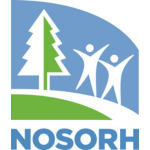COVID-19 has not only taught us more about social distancing, testing and the FDA approval process than we ever wanted to know, it has brought us hundreds of pages of new legislation leading to new funding, new service lines and new regulatory guidance. On April 30, yet another round of “sweeping changes” to support the healthcare community were announced. There are too many nuances to delve into all of them here, but the press release and other related guidance that has been released to date can be found on the NOSORH COVID-19 Resources web page. A couple of items of note:
- To ensure further expansion of telehealth in Medicare the press release for these new changes states, “For the duration of the COVID-19 emergency, CMS is waiving limitations on the types of clinical practitioners that can furnish Medicare telehealth services. Prior to this change, only doctors, nurse practitioners, physician assistants, and certain others could deliver telehealth services. Now, other practitioners are able to provide telehealth services, including physical therapists, occupational therapists, and speech language pathologists.”
- The CMS – COVID-19 Frequently Asked Questions (FAQs) on Medicare Fee-for-Service (FFS) Billing – UPDATED 4/29/2020 has been updated. This updated FAQ includes information on topics ranging from laboratory/testing services to hospital services to Rural Health Clinic (RHC) and Federally Qualified Health Center (FQHC). Pages 16-19 delve into RHC/FQHC services, including the expansion of virtual communication services.
- The Medicare Learning Networks MLN Matters number SE20016 New and Expanded Flexibilities for Rural Health Clinics (RHCs) and Federally Qualified Health Centers (FQHCs) During the COVID-19 Public Health Emergency (PHE) that provides the coding and billing guidance for telehealth services was significantly revised on April 30. The revisions provide a more in-depth focus on the process of appropriate billing and coding for these services as well as reiterating definitions of the different virtual services.
When delving into these new guidelines, if using sources other than the agency providing oversight, ensure they are trusted and have established credibility. Rely on the official guidance from the oversight body when possible.
With guidance coming so quickly, there are more questions than answers in some topic areas. The NOSORH website houses two pages dedicated to COVID-19:
- The first is the SORH COVID-19 Response page. This page is dedicated to documenting the weekly SORH COVID-19 Learning Community calls and related materials.
- The COVID-19 Resources page houses regulatory announcements and guidance as well as relevant resources and tools from members of our partner family. These resources are made available to assist in navigating the onslaught of new and revised guidance from our federal program partners.
Looking to share your rural-specific questions, concerns, models, innovations, successes and challenges? The Federal Office of Rural Health Policy is now operating an email address for the general public. Send to [email protected]
